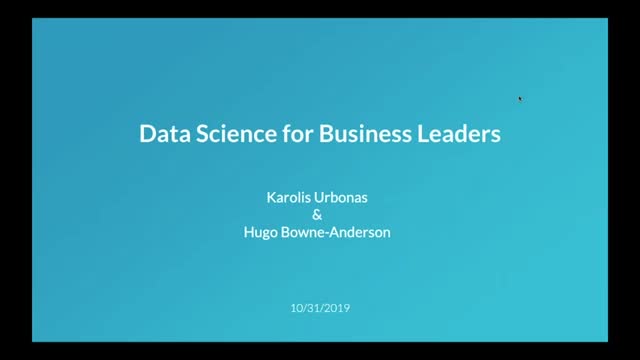Direkt zum InhaltWeitere Informationen





Lautsprecher


Karolis Urbonas
Global Head of Data Science and Analytics at Amazon Alexa
Trainierst du 2 oder mehr?
Erhalten Sie für Ihr Team Zugriff auf die vollständige DataCamp-Bibliothek mit zentralisierten Berichten, Zuweisungen, Projekten und mehrVerwandt
The Definitive Guide to Machine Learning for Business Leaders
Craft a 21st-century data strategy to optimize business outcomes.webinar
How to Build and Recruit World Class Data Teams
Learn how to effectively structure your data team for success.webinar
Manage Data Science Projects Effectively
Best practices in data science project managementwebinar
How Data Leaders Can Build an Impactful Data Team in 2023
Learn key principles data leaders should practice when hiring new data talentwebinar
5 Things Every Business Leader Needs to Know About Data Strategy
Find out the 5 key aspects of data strategy across different industries.webinar
Democratizing Data Science at Your Company
Data science isn't just for data scientists. It's for everyone at your company.Join 5000+ companies and 80% of the Fortune 1000 who use DataCamp to upskill their teams.
Loved by thousands of companies
